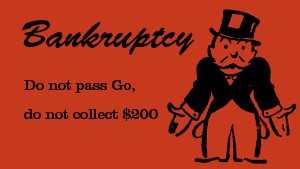
Bankruptcy Attorneys Fraud Claims NJ
You won a large judgment in state court against an individual who committed fraud. Before you can even attempt collection of your judgment the defendant files for bankruptcy. Now what do you do?
Our New Jersey bankruptcy lawyers represent creditors in prosecuting fraud claims in the United States Bankruptcy Court for the District of New Jersey [1].
It is not uncommon for individuals to file bankruptcy in an attempt to discharge a substantial debt procured through some act of fraud. The Bankruptcy Code and Bankruptcy Rules provide a very limited time period for creditors to object to the discharge of their debts under the specific exceptions to discharge set forth in Bankruptcy Code Section 523.
Experienced bankruptcy counsel is required to preserve your rights by filing the appropriate adversary complaint objecting to the discharge of your fraud judgment or claim. If the objection is successful, your claim will pass through the bankruptcy unaffected and you can pursue enforcement of the judgment against the debtor’s assets.
What types of fraud claims can be challenged in the Bankruptcy Court?
1. Debts predicated on false pretenses, a false representation, or actual fraud
Pursuant to Section 523(a)(2) of the Bankruptcy Code, a discharge in an individual Chapter 7, Chapter 11 or Chapter 13 bankruptcy does not operate to discharge the debtor from any debt:
(2) for money, property, services, or an extension, renewal, or refinancing of credit, to the extent obtained by—
(A) false pretenses, a false representation, or actual fraud, other than a statement respecting the debtor’s or an insider’s financial condition;
11 U.S.C. §523(a)(2)(A).
2. Debts predicated on a materially false written statement published with the intent to deceive
Under Section 523(a)(2)(B) of the Bankruptcy Code, a discharge in an individual Chapter 7, Chapter 11 or Chapter 13 bankruptcy does not operate to discharge the debtor from any debt created by:
(B) use of a statement in writing—
(i) that is materially false;
(ii) respecting the debtor’s or an insider’s financial condition;
(iii) on which the creditor to whom the debtor is liable for such money, property, services, or credit reasonably relied; and
(iv) that the debtor caused to be made or published with intent to deceive;
11 U.S.C. §523(a)(2)(B).
Bankruptcy Attorneys Fraud Claims NJ
Are you creditor requiring assistance in prosecuting a claim challenging the discharge of a judgment or debt predicated on fraud by the bankrupt debtor?
Our experienced bankruptcy litigation attorneys can help. Contact [2] our law firm today to discuss your case. For urgent matters, please call (201) 870-4938.